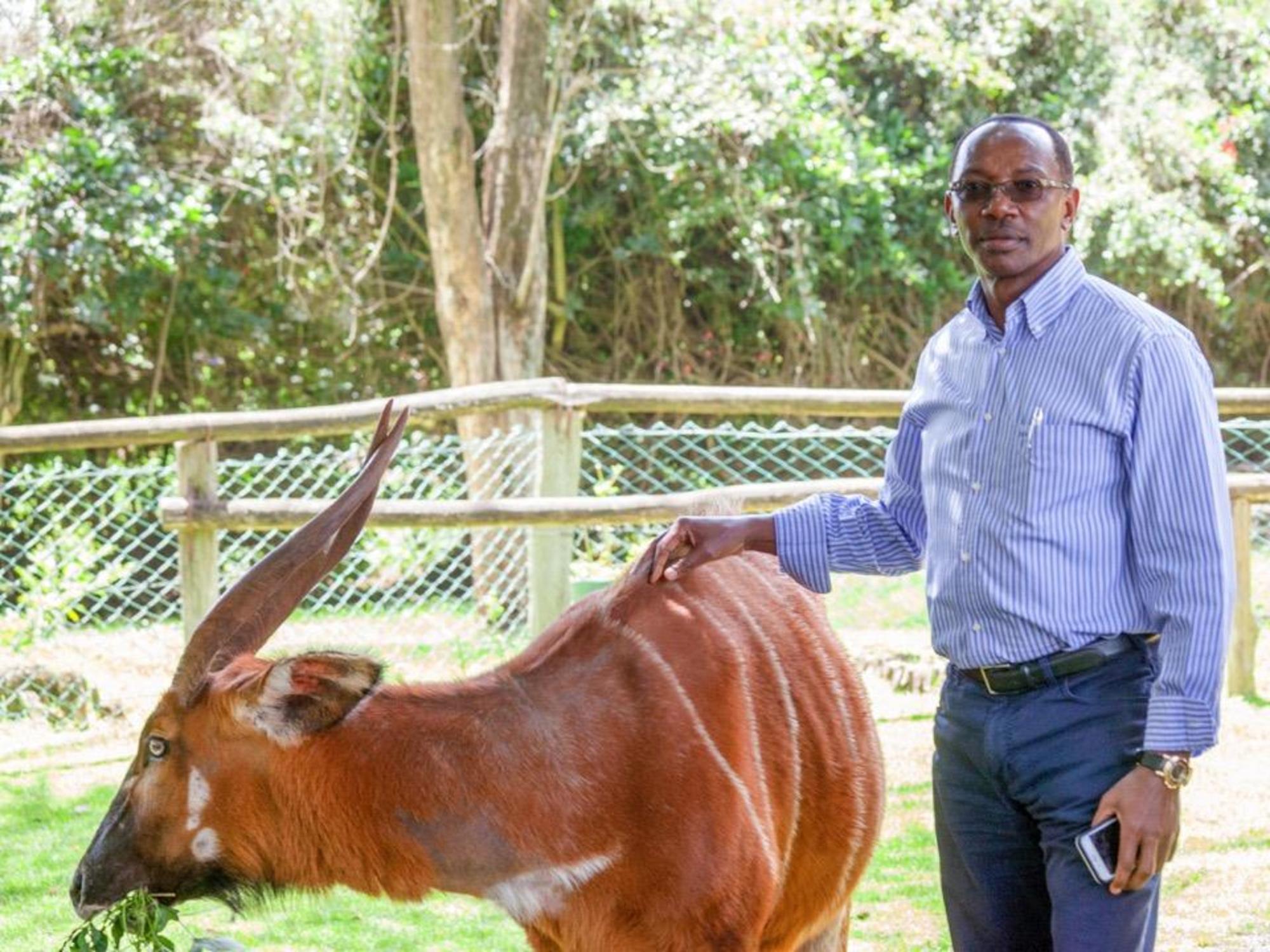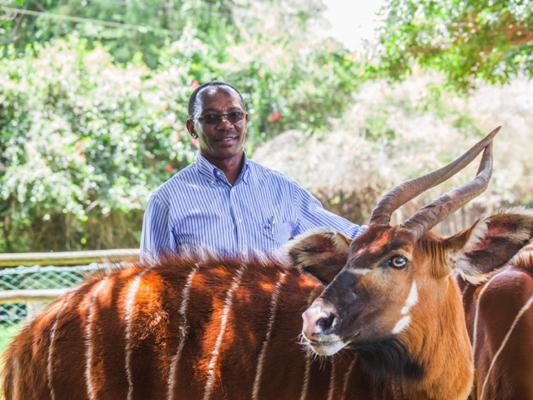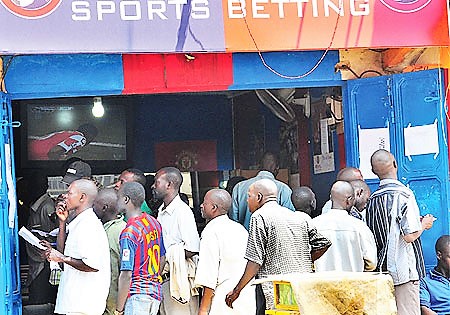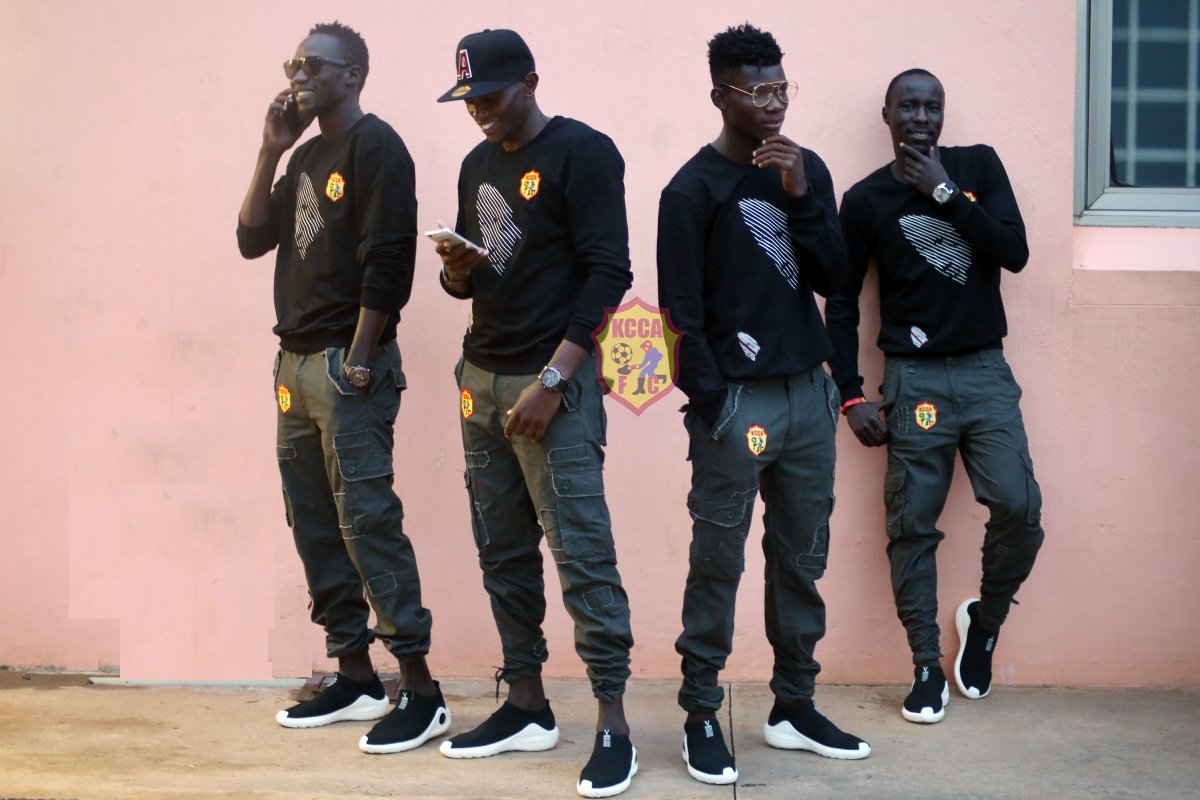Humphrey Kariuki Ndegwa is one of Kenya’s most storied, yet elusive businessmen. Over the last three decades, Ndegwa, 60, has quietly built his company, the Janus Continental Group, into one of East Africa’s largest conglomerates while staying away from the limelight, reports Forbes.
Modest in his personal life, calm in his demeanor, but audacious in business, Ndegwa has built a business conglomerate that includes The Hub – a premier shopping mall located in the beautiful leafy suburbs of Karen in Nairobi; Africa Spirits, Kenya’s leading manufacturer of Alcoholic beverages; Dalbit Petroleum, one of the largest oil distributors in East and Southern Africa, and Great Lakes Africa Energy, a U.K-based company that is a developer and operator of power projects in Southern Africa.
These businesses collectively employ more than 3,000 Kenyans and foreign nationals. Ndegwa is also the owner of the 5-star Fairmont Mount Kenya Safari Club, and the neighboring Mount Kenya Wildlife Conservancy and Animal Orphanage.

Since acquiring the Animal Orphanage from its American owners years ago, Ndegwa has spent a fortune providing shelter and professional care to orphaned, injured, neglected, abused or frightened wild animals, with the goal to releasing them back into the wild where they belong.
Forbes’ Mfonobong Nsehe recently had breakfast with the business mogul at his scenic ranch at his Wildlife conservancy in Mount Kenya, in close proximity to wandering Bongos, an endangered species of rare white Zebras, which he is helping protect.
He spent more than an hour recounting his success story, enlightening me about his conservation work, and musing on his African legacy.
What was your childhood like?
I was born in Nyeri County, in the Central Highlands of Kenya. I come from a family of ten siblings.
My dad had six sons and four daughters; I happen to be the last of his sons. We grew up in a typical rural setting.
In the mornings we used to wake up early to milk the cattle, cut the Napier grass and feed the animals before going to school.
School was about 3 kilometers away, so we used to run to school and back. My dad believed in the power of education and so he insisted that all of us – both the males and females, acquired an education.
I did my O’ levels at Nairobi School and subsequently proceeded to Kagumo High School for my A’ levels. After I completed my A levels, I had a break of 8 months, so I joined the Central Bank of Kenya.
At the time, I actually got into the Central Bank because I had cousins and people who already worked there, and they were able to get me in.
I was around 19 years old at the time, and I worked there as a clerical staff for a while. I was at the bottom of the ladder.
I always tell people that in life you need to start from the bottom; the only place where you start at the top is when you’re digging a well.
So I started as a clerk, and then went on to work in various other departments in the bank.
I worked for the Export department, the Foreign Exchange department and the Imports department.
It was a decent job, and I earned a decent income that was able to give me a comfortable living.
But after moving around the various departments in the Central Bank, I decided I wasn’t cut out for this job.
Also, I realized very early on in my life that I hated being subservient to people. And that’s one of the things that made me realize at an early age that I wanted to be an entrepreneur.
Tell me about your earliest entrepreneurial ventures
After working at the Central Bank for a while, I decided to take some time off to visit my elder sister in the United Kingdom.
She lived with her husband in Norwich and she had a car she had been trying to sell for sometime but she couldn’t get the price she wanted. I convinced her to allow me travel back to Kenya with the car so I could sell it. She agreed, and I shipped the car to Nairobi.
I recall that the car had a sticker that read ‘City Of Norwich’, and I would drive the car around Nairobi. One day, an English guy saw the car parked on the road, and he left a note on the car asking me to call him.
When I called him, he told me he was also from Norwich and he thought a fellow British person owned the car. I told him my sister lived there and I was selling the car on her behalf.
It turned out he was looking to buy a car, and I was able to sell it to him at double the price my sister was asking for. I gave my sister her money and kept the rest for myself.
I was amazed, and I wondered: ‘Is this how easy it is to make money?’ So that marked my entry into the car business, and for several years it was my mainstay.
After I had a made a substantial amount of money trading in cars, I started looking for my next business opportunity.

I came across this amazing space in a building in the Central Business District in Nairobi.
By this time I had travelled the world and had seen some interesting Quick Service Restaurants and Coffee shops, and I was intrigued by the idea of blending these ideas I had seen outside Kenya and replicating them into a trendy restaurant for Nairobi’s hip, urban professionals.
So, I created the famous Green Corner restaurant which Barack Obama referenced in his memoirs. We made the best Hamburgers, Steaks, and Samosas among other things.
For years, the Green Corner was the place where professionals who worked in Nairobi converged for their lunch and business meetings.
It was a very profitable business. I remember that I had taken a Ksh 300,000 loan from Kenya Commercial Bank at the time, which was equivalent to $15,000. We paid back the loan within 8 months.
Afterwards, I moved on to importing wines and other alcoholic beverages. In those days in Kenya, it was only Government that had the sole license to import alcohol, but as time went on, we were able to challenge that monopoly. I created a company, Wines of the World, which now trades today as WOW Beverages.
We acquired the sole distributorships in Kenya for many of the leading wines, premium whiskies and brandies in Europe and North America.
And then from Wines of the World, you decided to set up African Spirits. What inspired that?
I’ve always been a lover of the alcohol industry. I became a distributor for Bacardi, the Edrington Group, Jack Daniels and the other big beverage companies while in my early 20s.
But I figured out that one day, these brand owners could just come to Kenya and decide to take the sole distributorship from me. Maybe these guys just want to use me as their Guinea pig.
So I told myself: I could actually set up my own spirits business here. What’s the magic about it?
We have cane molasses here and everything else we need. So we started with our flagship product, Blue moon Vodka, which is the bestselling indigenous alcoholic brand in Kenya today.
Africa Spirits Limited was born. Then we did Legend, which is the bestselling brandy in Kenya today and we sell so many cases.
This was 15 years ago. I’m proud to say that Africa Spirits Limited is the most successful indigenous Alcoholic beverage company in Kenya today.
What is the story of your foray into the oil business? Your company, Dalbit Petroleum, is one of the largest downstream oil companies in Kenya. What did you figure out, and how has Dalbit Petroleum expanded so rapidly into other markets in East Africa?
With the success of my restaurant and alcohol marketing business, I decided to venture into oil distribution. I became an agent of the National Oil Company of Kenya (NOCK).
The government allowed us to buy fuel products from NOCK and distribute internally to other regions in Kenya. The margins were small, but it felt good to be in the oil business. This was in the eighties.
I had a couple of friends – the Horsey brothers who owned a construction company called Civicon, and they had a contract with the World Food Programme to distribute water in South Sudan, and to build some of the roads in the country.
So I formed a partnership with Civicon, and I set up a small depot in Kaboko border between Ibanga and South Sudan.
That was the first place we set up a small depot; it was an 80,000-cubic oil storage facility.
So, from Kaboko, we got the Horseys with their 8 by 8s trucks to transport the oil across to Juba and other places in South Sudan.
The margins were astronomical. The volumes weren’t much, but the margins were crazy. We were supplying the World Food Programme with oil, and then there was a drought in the country and the WFP was using helicopters to make food drops in South Sudan.
We were also supplying the WFP with oil in their airfields in South Sudan, and that’s where we started making the big margins.
Within eight years, the roads had been done, and as a result the margins started eroding.
We are still active in Sudan; we have a 6 million-litre depot there.
When our margins started thinning out in our oil trading business in Sudan, we expanded into Dar es Salaam and started going all the way into the Democratic Republic of Congo to deliver oil to the mines.
We now have very active operations in Kenya, Zambia, Tanzania and the DRC.
Your company, Great Lakes Africa Energy was hitherto unheard of, and then in February, there was a news splash that Great Lakes Company had been awarded a lucrative $400 million power tender in Mozambique. What are the origins of GL Africa Energy, and how does a Kenyan company win such a lucrative tender in Mozambique?
Before we registered Great Lakes Africa Energy in 2008, Dalbit Petroleum was already delivering products to the DRC.
Usually, before you get to Lumumbashi, you need to pass through Zambia. Zambia is one of the few countries in Africa with an inland refinery.
They pump their crude from Dar es Salaam all the way to Ndola in Zambia, which is about 2,000 kilometers.
In the crude refining process you’ll find that when the gasoline and distillate fuel oils have been extracted through distillation, the waste is Heavy Fuel Oil (HFO).
We discovered that Zambia had traditionally relied on hydroelectricity for its power needs. So I did a proposal to the government, asking for the permission to establish a Heavy Fuel Oil Power station in Ndola, near the Inland refinery. At first, they could not conceptualize it.
How do you generate electricity using Heavy Fuel Oil? Zambia had been using Hydro throughout and it was what they were used to; remember they border the Congo and the rainfall is heavy.
They were generating 1,800 MW using the hydro, so I had a bit of difficulty trying to convince them to set up.
At the end, they gave in. They gave me an acre of land and the permission to build a 50MW Heavy Fuel Oil power station.
Two and a half years later, it was running. A year later, drought came to Zambia and the 1,800 MW of power Zambia generated from Hydro went down to just a little over 900 MW.
So the government came to me and asked me to put another 55 MW, which we completed in 9 months.
So we already had a track record in Zambia. When the Government of Mozambique approached us to submit a proposal for a gas-powered plant in northeastern Mozambique, we submitted our proposal and got shortlisted on the strength of our antecedents. It’s quite simple, really.
We are still looking into how we will get the gas in, and we are still discussing with the government to iron out a few technicalities.
Some years ago you acquired this ranch, which is home to the Mount Kenya Wildlife Conservancy and Animal Orphanage. What was the idea behind the acquisition?
I started coming to this Game ranch as a young man in my twenties. I’ve always had a soft spot for animals and wildlife.
Iris and Don Hunt were the American couple that previously owned this property.
Don, who was once a prominent Television personality in the United States, used to be a big game hunter in Kenya, and he used to export the animals, but later on in life he had a Road to Damascus moment.
He decided against hunting animals, so, he and Iris acquired 1,216 acres of rough marginal rangeland surrounding the Mount Kenya Safari Club and started the Mount Kenya Wildlife Conservancy and Animal Orphanage, creating a successful method of rehabilitation and release of wildlife.
In 2006, Don and Iris offered the ranch for sale to Kingdom Holdings, the investment firm owned by Prince Alwaleed, but then the 2007/2008 economic downturn set in and he walked out of the deal.
Iris had cancer, and Don was getting old. So they started looking for a buyer, and I bought the game ranch.
These guys were doing a great job- taking care of injured animals, rehabilitating them and releasing them into their natural habitat.
So when Iris and Don asked me if I would be interested in a programme taking care of these endangered Mountain Bongo antelopes, I was excited.
This has become very personal for me. Our biggest assets are the wildlife we have, and we need to preserve this.
I feel privileged that I have this opportunity. 10,000 kids come through to this ranch every year to look at the animals and we educate them on the value of taking care of our wildlife.
We have a number of animal species that are almost extinct and we are trying to get them to mate and to recreate the.
We have the only 2 Pygmy Rhinos that are in the whole country.
How do you maintain it?
Right now, our companies contribute more than 85% of the conservancy’s operational costs. We plough our profits into this.
The Kenyan government has been gracious to us. Any profit from our businesses which we plough in here is not taxable.
In 2015, you bought the Fairmont Mount Kenya Safari Club. How did that happen?
It was destiny. Kingdom Holdings, which is owned by Saudi billionaire Prince Alwaleed Bin Talal, decided to sell its stake in the Fairmont Mount Kenya Safari club. It made a lot of sense to acquire it because the property is right in the center of the Game ranch and animal orphanage.
The hotel was a bit overpriced in my opinion, but we worked our numbers, and figured we could make it work. We are still doing a bit of work, and trying to integrate the conservancy with the hotel.
What would you like to be remembered for in the future?
I would like to be remembered for doing my own bit in preserving Kenya’s wildlife.





